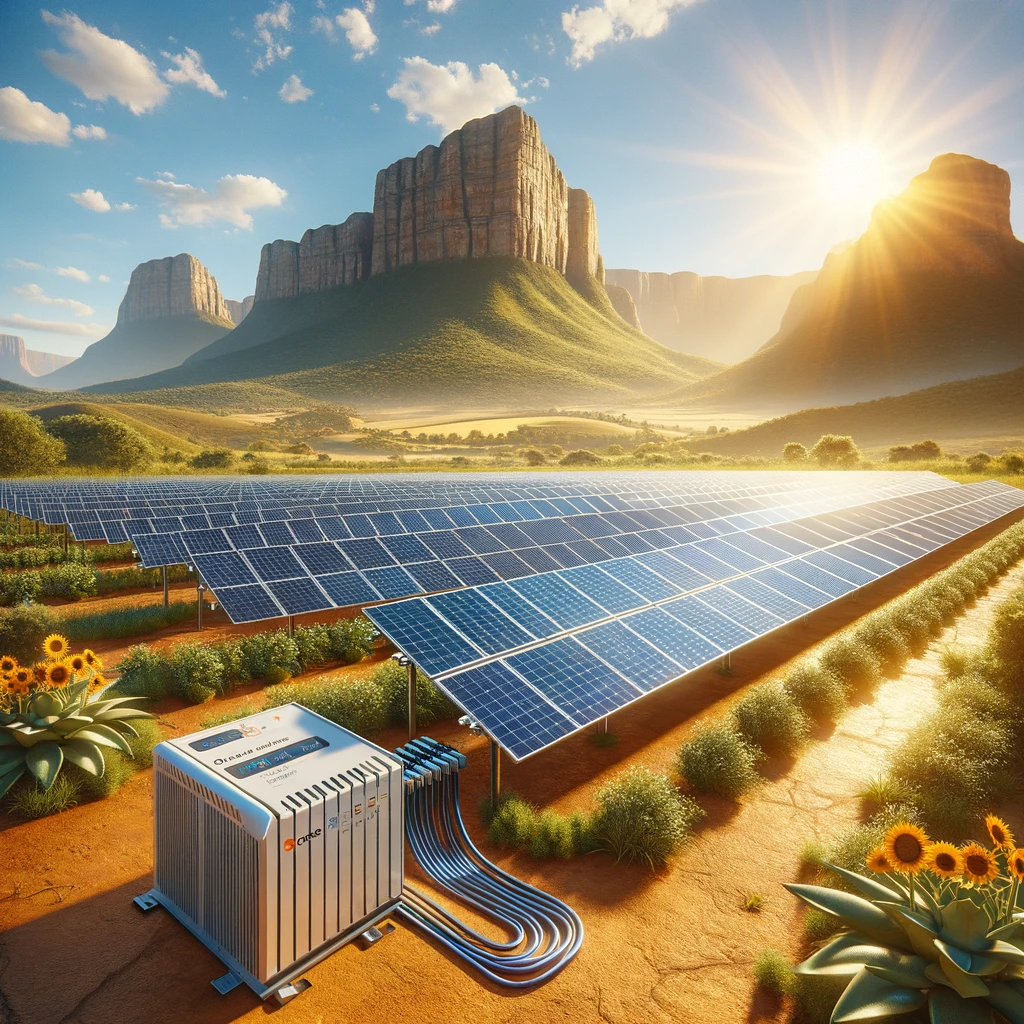Innovative PV Systems: A Sustainable Solution for South Africa's Energy Crisis

A study was conducted by various researchers from Durban University of Technology in South Africa and Midlands State University in Zimbabwe to explore how renewable energy, specifically grid-connected photovoltaic (PV) systems, can address South Africa's energy crisis. With the country facing significant electricity shortages and load shedding, this study highlights the potential of renewable energy to offer sustainable economic opportunities, improve living standards, and mitigate environmental impacts.
Methodology and Design Optimization
The researchers used PV Syst software to design, simulate, and optimize a grid-connected PV system. They conducted a feasibility analysis by comparing three scenarios with different tilt angles for the PV modules to determine the best system configuration. The study found that Scenario C, with a 15-degree tilt angle, was the most efficient, producing the highest specific energy production and total energy output.
Site Selection and System Components
To carry out the study, the researchers first analyzed the site, energy demand, and climatic conditions. They chose Lephalale in Limpopo province as the project location due to its high solar potential and favorable weather conditions. The PV system design included selecting a high-efficiency monocrystalline solar panel, Q.PLUS L-G4.1 340, and an efficient inverter, Ingecon Sun 50, for converting DC to AC power.
The simulation results showed that Scenario C had the highest specific energy production (1438 kWh/kWp/year) and total energy production (2259 MWh/year). However, Scenario A was ultimately chosen for implementation due to its balance between efficiency and cost. Scenario A required fewer PV modules, reducing overall costs while still producing a substantial amount of energy.
Economic and environmental analyses were also conducted to assess the feasibility of the PV system. The economic analysis indicated a payback period of 11.8 years, with the system generating positive net income annually. This means that the initial investment would be recovered in just over a decade, and the system would continue to generate profits. The environmental analysis highlighted the benefits of reducing greenhouse gas emissions and the minimal ecological footprint of the PV system compared to traditional coal-fired power plants.
Recommendations and Feasibility Analysis
The study concluded that grid-connected PV systems are a viable and sustainable option for South Africa's energy needs. Several recommendations were made for future research and implementation. Further research and development on emerging energy technologies and improvements in PV technology, including energy storage solutions, is essential. The government should implement incentives and policies that promote the adoption of renewable energy.
Financial incentives, tax breaks, and supportive policies can drive investment in renewable energy. Educational programs and community outreach initiatives can raise awareness about the benefits of solar energy, encouraging public support and investment in sustainable energy solutions. Investing in research and development to minimize the environmental impact of PV systems, such as recycling and sustainable end-of-life management of solar panels, is crucial. Regular monitoring and maintenance of PV systems ensure they operate at peak efficiency. This includes cleaning, equipment inspection, and software updates. Collaboration among academia, industry, and government can improve PV technology and the adoption of sustainable energy through shared knowledge, best practices, and data.
Towards a Sustainable Energy Future
The study emphasizes the importance of renewable energy adoption in achieving Sustainable Development Goal 7, which focuses on access to affordable and reliable energy. By implementing these recommendations, South Africa can move towards a sustainable energy future, addressing both economic and environmental challenges.
The grid-connected PV systems present a promising solution for South Africa's energy crisis. The combination of high efficiency, reduced environmental impact, and economic viability makes them a sustainable option for the country's energy needs. With the right policies, community support, and continuous innovation, renewable energy can play a central role in South Africa's sustainable development.
- FIRST PUBLISHED IN:
- Devdiscourse
ALSO READ
India's Renewable Energy Vision: Insights from Ratul Puri
Tata Power to Invest Rs 20,000 Crore in FY25 with Focus on Renewable Energy
India's Vanguard Role in Achieving Sustainable Development Goals
La Banque Postale and EIB Renew Partnership for Renewable Energy and Sustainable Mobility
World Bank Approves $122 Million to Boost Renewable Energy in Botswana










